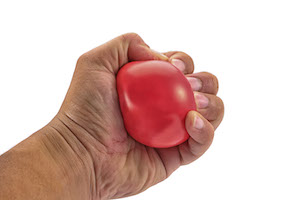Treatment Services
Achieve your wellness goals! Have you been wanting to change some aspects of your lifestyle? Do you feel as if your emotional state is distorted, or inconsistent with your circumstances? Improve your motivation and set clear solution-oriented goals. Ask yourself this question: What do you want? Find out how to arrive at a solution!
It begins with an initial assessment. Treatment planning will be mutually agreed upon. Find relief from emotional, behavioral, or health related issues and change unwanted habits. Focus on a solution as opposed to just analyzing why a problem exists. By blending a variety of treatment approaches, we can establish your goals and create a well-formed commitment to change. Individual therapy can be utilized to address any number of issues. A sample of services includes the following:
Working with Children and Adolescents - As children and adolescents mature, they face a wide variety of developmental challenges. Parents may begin to wonder, "Is my child's behavior normal?" or "Do we need help?" Oftentimes, the answer is yes to both questions. Through working with children in many settings including school, community, and private practice; we have been able to help them and their parents navigate a wide array of issues. These include attention and executive functioning concerns, behavioral difficulties, learning and school struggles, organizational improvement, depression, anxiety, and coping with life transitions. Because parents are the most important people in any child’s life, we work closely with them to provide strategies for managing behavior. We also communicate treatment goals with parents so they can reinforce and provide reminders at home. Finally, we incorporate parental feedback into regular evaluation of progress towards goals, while preserving the child’s confidentiality.
 Couples Counseling - Sarah is certified as a Level 1 Gottman Couples therapist and utilizes this approach in counseling. The Gottman method of couple’s therapy is based on Dr. John Gottman’s research that began in the 1970s and continues to this day. The research has focused on what makes relationships succeed or fail. From this research, Dr. Gottman has created a method of therapy that emphasizes a “nuts and bolts” approach to improving client’s relationships. The method is designed to help teach specific tools to deepen friendship and intimacy while productively managing conflicts. We will also work together to help you appreciate your relationships strengths and to gently navigate through its vulnerabilities. Couples Counseling - Sarah is certified as a Level 1 Gottman Couples therapist and utilizes this approach in counseling. The Gottman method of couple’s therapy is based on Dr. John Gottman’s research that began in the 1970s and continues to this day. The research has focused on what makes relationships succeed or fail. From this research, Dr. Gottman has created a method of therapy that emphasizes a “nuts and bolts” approach to improving client’s relationships. The method is designed to help teach specific tools to deepen friendship and intimacy while productively managing conflicts. We will also work together to help you appreciate your relationships strengths and to gently navigate through its vulnerabilities.
 Depression - Symptoms of Depression include Persistent sad, anxious or "empty" feelings; Feelings of hopelessness and/or pessimism; Feelings of guilt, worthlessness and/or helplessness; Irritability, restlessness; Loss of interest in activities or hobbies once pleasurable, including sex; Fatigue and decreased energy; Difficulty concentrating, remembering details and making decisions; Insomnia, early–morning wakefulness, or excessive sleeping; Overeating, or appetite loss; Thoughts of suicide, suicide attempts; Persistent aches or pains, headaches, cramps or digestive problems that do not ease even with treatment. If you would like an evaluation to explore these symptoms, or you would like counseling in conjunction with medication that is already being prescribed to you, please call for an appointment. Depression - Symptoms of Depression include Persistent sad, anxious or "empty" feelings; Feelings of hopelessness and/or pessimism; Feelings of guilt, worthlessness and/or helplessness; Irritability, restlessness; Loss of interest in activities or hobbies once pleasurable, including sex; Fatigue and decreased energy; Difficulty concentrating, remembering details and making decisions; Insomnia, early–morning wakefulness, or excessive sleeping; Overeating, or appetite loss; Thoughts of suicide, suicide attempts; Persistent aches or pains, headaches, cramps or digestive problems that do not ease even with treatment. If you would like an evaluation to explore these symptoms, or you would like counseling in conjunction with medication that is already being prescribed to you, please call for an appointment.
 Anxiety - Generalized Anxiety, Obsessive-Compulsive Behaviors, Specific Phobias, Social Anxieties, and Posttraumatic Stress are all different types of anxiety disorders. Anxiety is the body’s natural response to a perceived danger; to trigger an ‘alarm’ when we feel threatened. Sometimes a fear or worry is persistent or severe in situations where most people would not feel threatened. A cognitive-behavioral approach is useful to change the thinking patterns that support the fears, and change the way people react (behavior) to the anxiety-provoking situation. Also utilized are deep relaxation strategies are used to help alleviate these feelings and fears. Anxiety - Generalized Anxiety, Obsessive-Compulsive Behaviors, Specific Phobias, Social Anxieties, and Posttraumatic Stress are all different types of anxiety disorders. Anxiety is the body’s natural response to a perceived danger; to trigger an ‘alarm’ when we feel threatened. Sometimes a fear or worry is persistent or severe in situations where most people would not feel threatened. A cognitive-behavioral approach is useful to change the thinking patterns that support the fears, and change the way people react (behavior) to the anxiety-provoking situation. Also utilized are deep relaxation strategies are used to help alleviate these feelings and fears.
 Stress Relief - Through guided meditation or guided imagery, mindfulness exercises, and proper breathing, experience a new form of relaxation to reduce stress. The mind and body are complementary with each other. By producing a state of tranquil inner peace, you will create a sense of calm, and balance. This may be indicated for sleep problems / insomnia, anxiety, depression, and can assist with managing mild to moderate pain, as well as other physical conditions that can be exacerbated by stress. Stress Relief - Through guided meditation or guided imagery, mindfulness exercises, and proper breathing, experience a new form of relaxation to reduce stress. The mind and body are complementary with each other. By producing a state of tranquil inner peace, you will create a sense of calm, and balance. This may be indicated for sleep problems / insomnia, anxiety, depression, and can assist with managing mild to moderate pain, as well as other physical conditions that can be exacerbated by stress.
 Alcohol and Substance Abuse - Alcohol and substance abuse is treatable with the right level of support. Learn the difference between misuse, abuse, and dependence. Addiction is much more complicated than a moral flaw or a lack of willpower, but rather a disease that affects both the brain and behavior .Understand that change is more of a process and not an event. Discover the stage of change you are in, and make movement toward taking action and learn how to regain control over your life. Modify your attitude and behaviors related to drug or alcohol abuse, learn coping skills to handle stressful situations or environmental triggers. Alcohol and Substance Abuse - Alcohol and substance abuse is treatable with the right level of support. Learn the difference between misuse, abuse, and dependence. Addiction is much more complicated than a moral flaw or a lack of willpower, but rather a disease that affects both the brain and behavior .Understand that change is more of a process and not an event. Discover the stage of change you are in, and make movement toward taking action and learn how to regain control over your life. Modify your attitude and behaviors related to drug or alcohol abuse, learn coping skills to handle stressful situations or environmental triggers.
 Gambling Treatment - Gambling is a popular social and entertainment activity, and like many things, should be enjoyed with moderation and responsibility. The gaming industry is expanding in Maryland and nationally, and there is a greater need for treatment. Gambling Disorder is now classified as an addictive disease in the Diagnostic and Statistical Manual (DSM-V) and therefore, should not be viewed as simply a lack of self-control or a moral flaw. Treatment is available. Michael Spaulding is one of a small handful of clinicians in Maryland that is recognized as a International Certified Gambling Counselor (ICGC-II). When gambling is causing problems with mood, social, or vocational functioning and / or there are preoccupations with gambling, needing to bet more money to get the desired response, going back and “chasing” after losses, and feeling irritable when attempting to stop gambling, an assessment to discuss treatment options is highly recommended. Gambling Treatment - Gambling is a popular social and entertainment activity, and like many things, should be enjoyed with moderation and responsibility. The gaming industry is expanding in Maryland and nationally, and there is a greater need for treatment. Gambling Disorder is now classified as an addictive disease in the Diagnostic and Statistical Manual (DSM-V) and therefore, should not be viewed as simply a lack of self-control or a moral flaw. Treatment is available. Michael Spaulding is one of a small handful of clinicians in Maryland that is recognized as a International Certified Gambling Counselor (ICGC-II). When gambling is causing problems with mood, social, or vocational functioning and / or there are preoccupations with gambling, needing to bet more money to get the desired response, going back and “chasing” after losses, and feeling irritable when attempting to stop gambling, an assessment to discuss treatment options is highly recommended. Presently, there are state funds available to anyone struggling with gambling behaviors (or the loved one of a problem gambler) to seek professional counseling for up to 1-year at no cost to you. You may reach out to 1-800-GAMBLER to speak to a representative about the counselors closest to you that offer this service, or you may contact Michael Spaulding directly at (410)599-7870 to start the process.
|